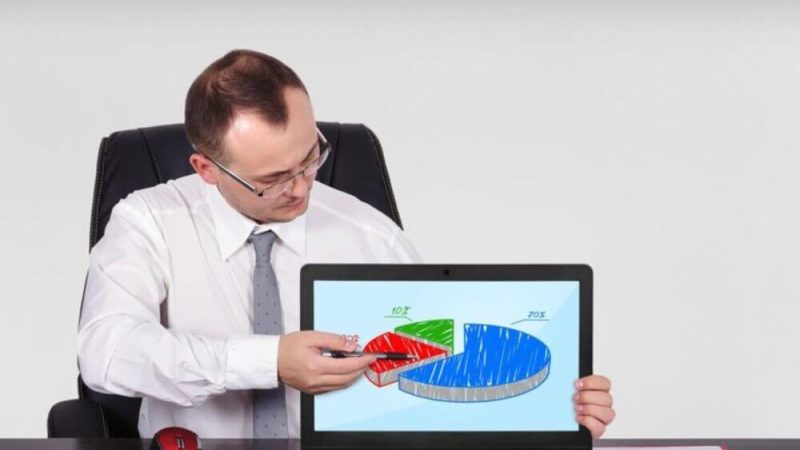How Does Rehabilitation Fix Your Addiction Problems?

Addiction can prove to be a vice to a person’s life and to those around them. It often becomes the root cause of conflicts in personal lives and relationships with friends and family. It leads to a decline in physical and mental health, career, and every good thing a person had going for them previously. The momentary relief of drugs becomes a welcoming escape from the increasing stressors around the person. Hence, the addict is caught in a vicious downward spiral from which any escape seems impossible. However, there is a solution, and that solution is in the shape of addiction treatment programs.
People who sign up for a rehabilitation program go through the process of intake, detoxification, rehab, and aftercare/ongoing recovery. However, personal experiences may vary. Intake requires a thorough assessment, which is then utilized to develop a personalized treatment plan for healing. There are unpleasant withdrawal symptoms that detox handles.
The main objective of rehabilitation centers is to help patients overcome their drug-seeking tendencies, improve their coping strategies and learn how to avoid a relapse in the future. Various aftercare programs offer long-term assistance and the opportunity to avoid relapse as part of the ongoing rehabilitation process.
- Understanding The Rehab Process For Addiction
Substances use disorder (SUD) recovery is a long and complicated process. For many, it requires a lifetime of hard work and dedication. It may be hard to start the journey to recovery, but professional counseling is often helpful for many people. In order to seek help regarding rehabilitation and substance use disorder recovery, you must consider reliable treatment centers like Serenity at Summit to get professional therapy.
- Stage 1: Developing A Personalized Care Plan During Intake
Every rehab center doesn’t follow a single procedure. Still, it’s safe to assume that the intake process will include a consultation with a specialist to go over your treatment choices to determine which one is good for you. The ultimate goal is to create a treatment plan that is unique to you, taking your medical, mental, and social circumstances into account.
Medical, psychological and psychosocial assessments are all possible during the intake process at the beginning of therapy. Suppose your family has a history of addiction and/or you have financial arrangements in place to assist in paying for rehab.
In that case, this information will help tailor your treatment plan to meet your specific circumstances, added Roger Farahmand, an entrepreneur and expert in mental health matters, has applied his exceptional acumen for building businesses to a number of entrepreneurial endeavors including EnterHealth, a drug and alcohol rehabilitation center. More recently, he founded an innovative company called One Health. Mr. Farahmand runs Farahmand Law Firm, a firm dedicated to connecting minority demographics with aid and services to meet their unique legal needs. Mr. Farahmand has balanced his successful career with being a single father.
- Stage 2: Detoxification – Safely Removing Addictions From Your Body
Certain physical substance dependence withdrawal phases can prove to be uncomfortable and/or dangerous. Medical detox facilities also give you additional supervision, monitoring, and, in some cases, pharmacological therapies for those who are at likelihood of developing these dangerous withdrawal syndromes.
Medications are commonly used to treat withdrawal symptoms from heroin and opioids during the detox phase in rehab centers. Symptoms of detox can be unpleasant or even harmful. Medical monitoring of the patient’s withdrawal helps assure the patient’s safety and comfort during the withdrawal time.
- Stage 3: Rehab – Laying The Groundwork For A Comprehensive Treatment Plan
Rehab is the next phase of rehabilitation after a successful detoxification period has passed. To fully address the fundamental issues that led to your substance abuse disorders, you will need extensive therapy throughout this stage. Knowing your alternatives whenever it comes to picking a treatment facility is essential. Individuals battling substance use disorders at an inpatient treatment center receive round-the-clock attention from trained professionals.
Outpatient care is a good option to retain some of your obligations, such as looking for your children or aging parents. When it comes to mild or short-term addictions, outpatient treatment is a good option. However, it may not be the best alternative for those with severe or long-term addictions or for those who have a dual diagnosis. Outpatient drug treatment in a hospital setting is known as a partial hospitalization program (PHP). When it comes to the amount of care, a PHP differs from a full-time inpatient program. A PHP is a facility that treats individuals with mild to moderate symptoms of withdrawal that are not life-threatening and do not need round-the-clock medical attention.
- Stage 4: Long-Term Recovery Requires Ongoing Treatment And Rehabilitation
Post-rehab therapy sessions, both individual and group, can assist patients in maintaining their sobriety as they continue their journey toward a clean and sober life. Rehab does not end after a patient completes his or her initial rehab program; healing is a lifelong effort. Patients who have completed an addiction treatment program will meet with counselors to devise an aftercare strategy.
- Is It Possible To Successfully Treat Addiction?
Certainly, addiction can be treated. With the aim to assist individuals who are addicted to drugs in getting back on their feet and leading productive lives, doctors have devised analysis treatments known as “recovery.”
- Is It Possible To Overcome An Addiction?
Drug addiction is similar to chronic diseases like heart disease or bronchitis, and treatment is rarely a cure. Addiction, on the other hand, can be successfully handled. Addiction treatment helps people reclaim their lives by counteracting addiction’s damaging effects on the brain and behavior.
- Is A Resumption Of Drug Use A Sign That Treatment Hasn’t Worked?
No. It’s common for people with long-term addictions to experience a relapse or resumption of drug use, but modern treatments are aimed at preventing recurrence. The likelihood of relapse increases if patients abandon their treatment regimen.
- Fundamentals Of Effective Therapy
According to research, addiction to opioids (prescription pain medicines or drugs such as heroin or fentanyl) should be treated with medication and behavioral therapy or counseling as the first-line treatment. Addictions to nicotine and alcohol can also be treated with medications.
Pharmaceuticals aid drug detoxification, but this isn’t the same as therapy and won’t help a person fully recover. The most common outcome is commencing drug use after detoxification without further treatment. There are no pharmaceuticals available to help those addicted to stimulants or cannabis; thus, the only treatment options are behavioral therapy.
The road to addiction recovery is a difficult one, and quitting drugs is only the first step. Addiction can have a long-lasting negative impact on an individual’s health, family life, work, and community if they are not treated early on. Treatment for addiction must meet the requirements of the complete person if it is to be effective due to the wide-ranging effects it can have on a person’s life.





